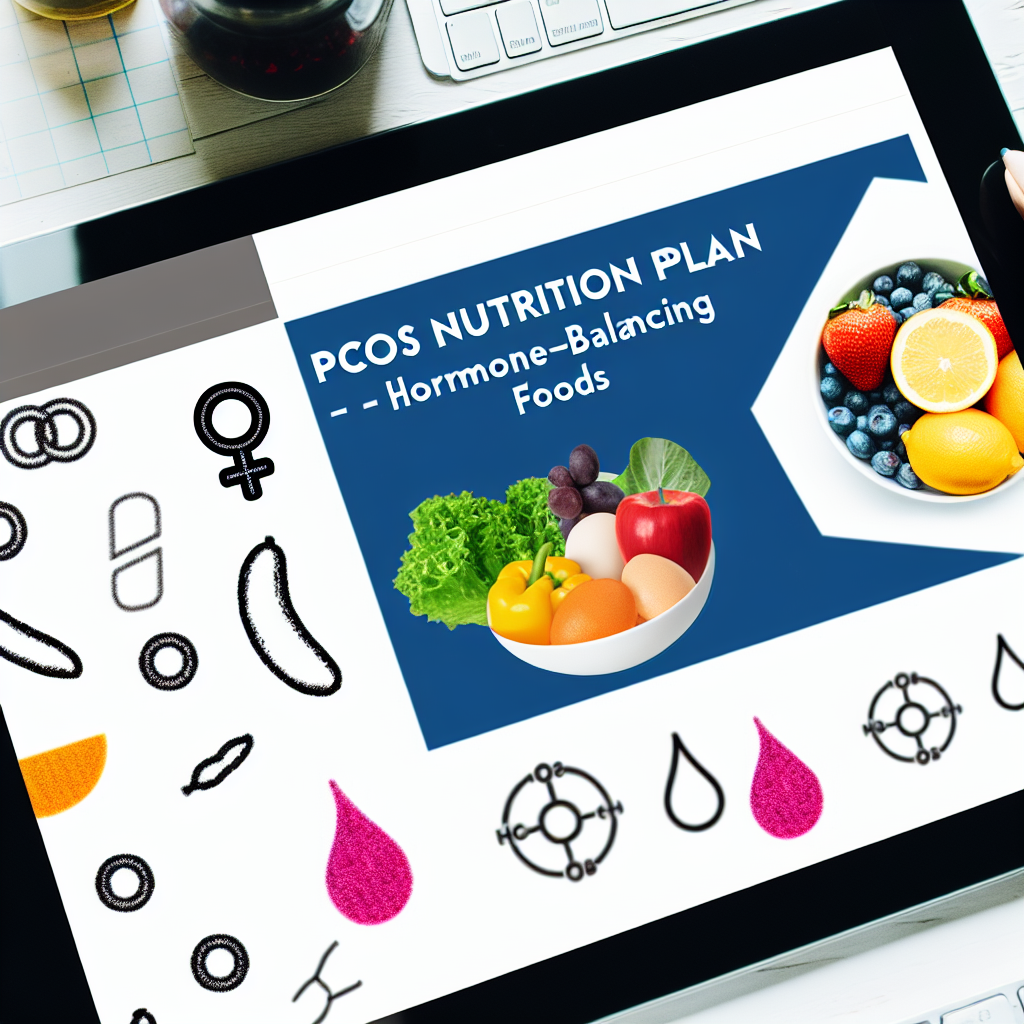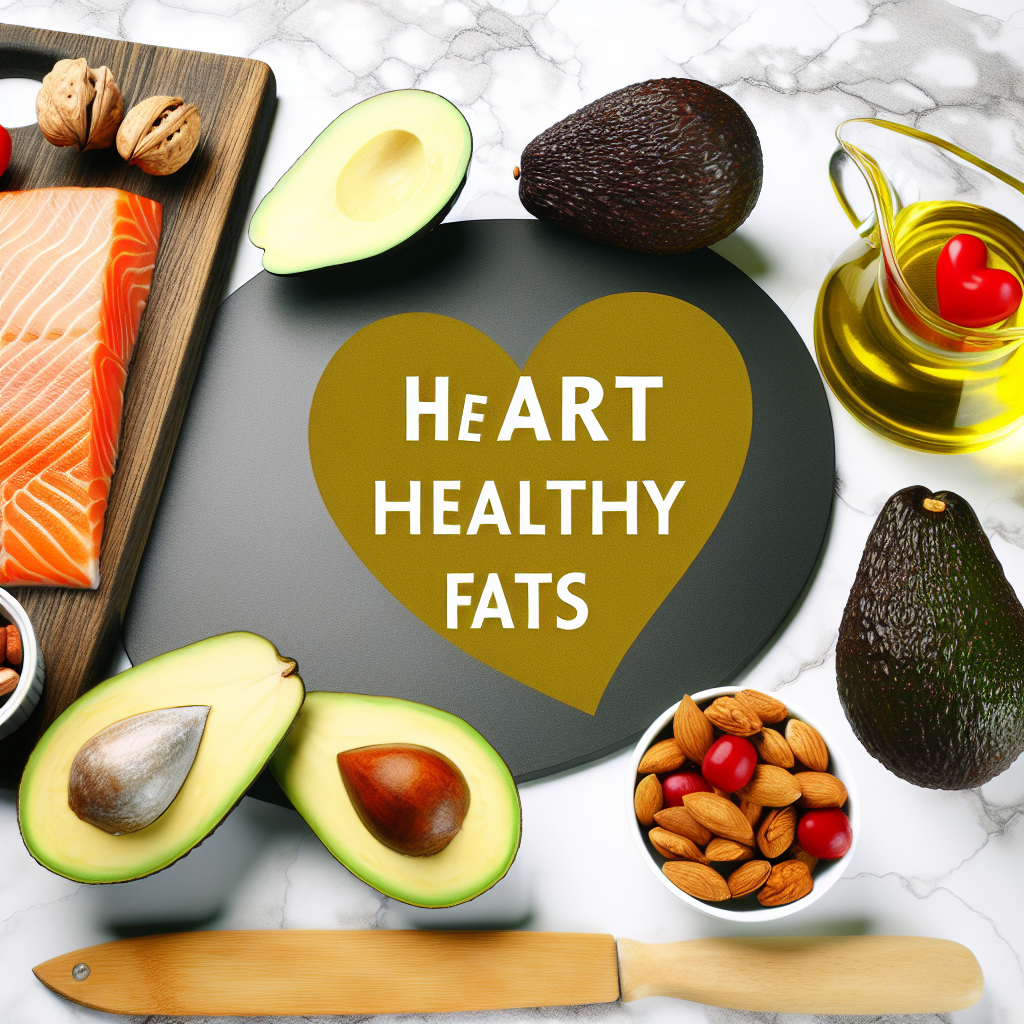PCOS Nutrition Plan – Hormone-Balancing Foods
Introduction
Polycystic Ovary Syndrome (PCOS) is a complex hormonal condition that affects about 1 in 10 women of reproductive age globally. Symptoms include irregular periods, weight gain, acne, excessive hair growth, and fertility challenges. At its core, PCOS is often driven by hormone imbalances—particularly elevated androgens and insulin resistance.
While medications like oral contraceptives and insulin sensitizers exist, many women are turning to personalized, natural methods—especially through nutrition. Scientific research supports that intentional food choices help stabilize blood sugar, reduce systemic inflammation, and regulate hormone production. Specifically, a diet rich in whole, unprocessed, low glycemic index foods can aid insulin function and hormonal balance.
A well-constructed PCOS diet plan prioritizes plant-based, anti-inflammatory foods filled with essential nutrients like magnesium, omega-3s, antioxidants, and fiber. In addition to improving PCOS symptoms, such a diet often boosts energy, enhances fertility, improves skin clarity, and reduces mood imbalances.
This article explores top hormone-balancing foods and provides science-backed strategies to naturally manage PCOS—offering a powerful foundation for those interested in adopting a holistic wellness journey.
Medical and Professional Studies Supporting PCOS Nutrition Therapy
Extensive research validates the vital role of diet in alleviating PCOS symptoms. Many studies reveal that controlling insulin resistance through nutrition dramatically improves hormone levels and metabolic health.
A 2009 study in the Journal of Clinical Endocrinology & Metabolism demonstrated that a low glycemic index diet significantly improved insulin sensitivity and reduced testosterone levels in women with PCOS compared to a standard healthy diet. By avoiding rapid blood sugar spikes, low-GI foods help stabilize insulin levels and mitigate hormonal disruptions.
Omega-3 fatty acids also hold therapeutic promise. A study in the Journal of the American College of Nutrition found that omega-3 supplementation improved insulin function and reduced male hormone levels (androgens) in women with PCOS. Natural sources include fatty fish, flaxseeds, chia seeds, and walnuts.
A randomized controlled trial published in the Iranian Journal of Reproductive Medicine found that drinking spearmint tea daily for a month lowered testosterone levels and lessened hirsutism, a common PCOS symptom. This suggests herbal remedies such as spearmint, cinnamon, and licorice root can act as natural hormone regulators.
Moreover, a meta-review in the journal Nutrients confirmed the benefits of the Mediterranean diet in improving metabolic and reproductive factors in PCOS women—highlighting its role in lowering inflammation and supporting insulin sensitivity.
Micronutrient deficiencies, particularly in magnesium and zinc, are common in PCOS and can affect both insulin function and hormone production. Including foods high in these minerals—such as dark leafy greens, pumpkin seeds, chickpeas, and nuts—helps support mood, energy levels, and reproductive health.
Hormone-Balancing Foods to Include in Your PCOS Nutrition Plan
1. Leafy Greens and Cruciferous Vegetables
Spinach, kale, broccoli, arugula, and cauliflower are fiber-rich and packed with phytochemicals like diindolylmethane (DIM). DIM supports estrogen metabolism and helps balance hormone levels by promoting liver detoxification. The high antioxidant content also helps reduce oxidative stress, which is heightened in PCOS.
2. Healthy Fats
Avocados, olive oil, coconut oil, nuts, and seeds provide essential fatty acids crucial for hormone production. These fats also reduce inflammation and regulate hunger-related hormones like leptin and ghrelin, making weight management easier for women with PCOS.
3. Low-GI Whole Grains
Choosing complex carbohydrates like quinoa, brown rice, oats, and barley helps prevent insulin spikes. They release glucose gradually, supporting stable energy and improved insulin response—critical components in a PCOS-friendly diet.
4. Lean Proteins
Sources like wild salmon, organic chicken, lentils, tofu, and tempeh provide high-quality protein necessary for cell repair and hormonal synthesis. They also help maintain satiety and promote lean body mass, which enhances metabolic function and insulin sensitivity.
5. Fruits High in Antioxidants
Berries, pomegranates, apples, and citrus fruits are rich in vitamin C and polyphenols that combat oxidative stress—a major contributor to hormonal imbalance. Antioxidants also support ovarian function and protect against inflammation-induced damage.
6. Herbal Teas and Herbs
Spearmint tea helps lower testosterone, cinnamon stabilizes blood glucose, licorice root has adaptogenic properties, and fenugreek boosts insulin sensitivity. Regular consumption (e.g., herbal tea twice daily) may help regulate menstrual cycles and improve endocrine function naturally.
7. Probiotics and Fermented Foods
PCOS is often linked to gut imbalance. Foods like kefir, kimchi, sauerkraut, and yogurt promote a healthy microbiome. A balanced gut reduces systemic inflammation, improves nutrient absorption, and indirectly supports hormone regulation.
8. Magnesium and Zinc-Rich Foods
Pumpkin seeds, almonds, chickpeas, spinach, and dark chocolate contain vital minerals. Magnesium helps manage PMS, stress response, and improves insulin signaling. Zinc supports immune function, reproductive health, and may help regulate menstrual cycles.
Conclusion
Managing PCOS naturally is possible—and it begins with mindful nutrition. Prioritizing hormone-balancing foods like anti-inflammatory vegetables, lean proteins, plant fats, low-GI grains, and therapeutic herbs gives the body the tools it needs to restore balance.
Rather than transient diets or quick fixes, consider slowly integrating these hormone-friendly foods into daily routines. Over time, consistency in your eating pattern—not perfection—leads to reduced symptoms, enhanced fertility, improved mood, and more energy. Food may not be a sole cure, but it plays a foundational role in naturally managing PCOS from the inside out.
Empower your healing journey with food that nourishes, regulates, and balances your hormones—one bite at a time.
References
– Journal of Clinical Endocrinology & Metabolism – Low GI diet improves insulin and androgens
– Omega-3 effects on PCOS: Journal of the American College of Nutrition
– Randomized Control Trial – Spearmint Tea for PCOS
– Meta-Analysis – Mediterranean Diet Benefits in PCOS
Summary
A PCOS nutrition plan emphasizes whole, anti-inflammatory, nutrient-rich foods that help regulate insulin, balance hormones, and reduce symptoms naturally. Key foods include leafy greens, lean protein, omega-3 fats, antioxidant-rich fruits, herbal teas, and low-GI carbs. Scientific research, including RCTs and meta-analyses, confirm that dietary strategies—especially low-GI and Mediterranean diets—significantly improve hormonal and metabolic outcomes in women with PCOS. Supplementing with magnesium, zinc, and omega-3s further enhances hormone support. While not a cure, a nutrition-focused lifestyle can be a highly effective holistic solution for long-term PCOS management and improved quality of life.

Dominic E. is a passionate filmmaker navigating the exciting intersection of art and science. By day, he delves into the complexities of the human body as a full-time medical writer, meticulously translating intricate medical concepts into accessible and engaging narratives. By night, he explores the boundless realm of cinematic storytelling, crafting narratives that evoke emotion and challenge perspectives.
Film Student and Full-time Medical Writer for ContentVendor.com



